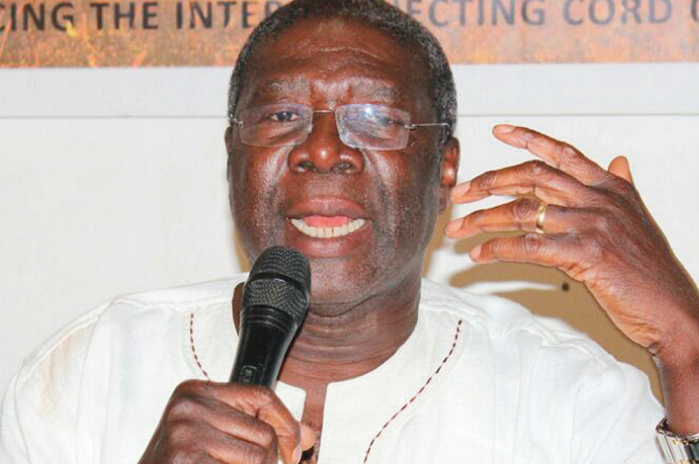
AU to work with governments to curb death of young migrants
The Deputy Chairman of the African Union (AU) Commission, Ambassador Kwesi Quartey, says the continental body will work with African governments to curb the perennial loss of young people to the Mediterranean Sea.
He said the antidote to young people risking their lives in search of better prospects in Europe and elsewhere was the creation of employment opportunities.
He was delivering a lecture titled: “From trans-Atlantic slave trade to Africa Union”, as part of events marking the Black History Month and Beyond of the Institute of African Studies of the University of Ghana.
Ambassador Quartey rallied young people on the continent to value education, saying it was the biggest weapon to turn around the fortunes of the continent.
European countries, including Italy and Greece, have, over the years, been battling the continuous influx of people from West Africa and the Horn of Africa in search of greener pastures.
According to UNHCR figures, by May 2016, more than 2,500 people had died trying to cross the Mediterranean in rubber dinghies and rusty fishing boats.
At the same period, nearly 47,000 migrants reached Italy, the vast majority of them sub-Saharan Africans from countries such as Senegal, Nigeria and The Gambia, classified as economic migrants, as well as many from Eritrea and Somalia, who are more likely to be viewed as asylum seekers.
Slave trade
Ambassador Quartey urged Africans to sieve through what they read as the continent’s history and accounts of the slave trade, “as part of it is to try and glorify their history and diminish ours, so that we are perpetually, intellectually, psychologically and mentally enslaved to their way of thinking”.
He noted that over the years, Western colonialists and slave traders had secretly admired the strength of the character and soul of the African, but on the contrary there was a purpose for branding Africans as being naïve and dumb.
Part of the ploy, he pointed out, was to arm Africans against one another and create wars that resulted in captives being sold to the slave traders.
“It is a miracle that anybody survived at all because in some places where this clash of cultures occurred, whole tribes were eliminated,” he added.
He said the situation bred so much suspicion and was only brought to an end after the abolition of the slave trade when the Europeans realised that there were other ways to make money, including palm oil and minerals trade.
Reparation
On the issue of reparation, he said since the Durban Summit of the United Nations where it was agreed that the slave trade was a crime against humanity, there was to be consequences for the perpetrators.
“The perpetrators are the most powerful countries and their accomplices are the most powerful people in the countries which suffered and so it becomes difficult,” he said.
Ambassador Quartey said the way forward was to build public opinion towards recognising that the slave trade was a crime against humanity.
“But what form of reparation would this take? There are those who think that some amount in foreign currency be paid, while others also think that Africans in the Diaspora, especially the Caribbean and the United States, should be given that amount,” he said.
